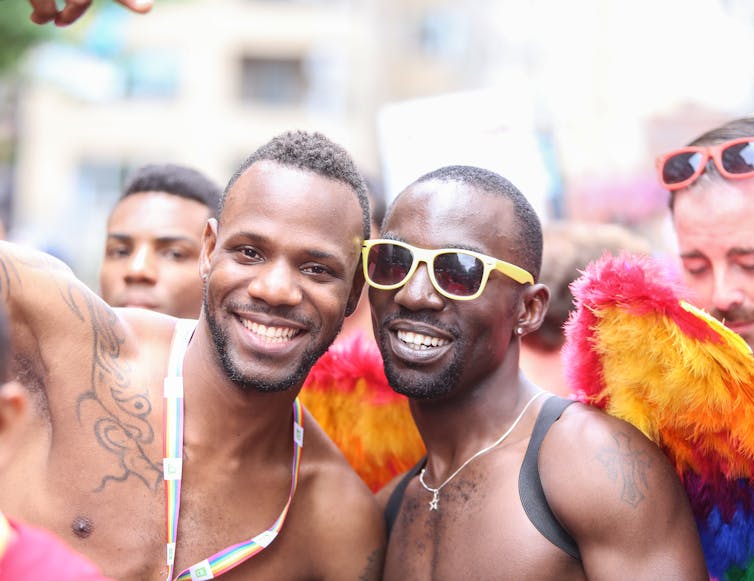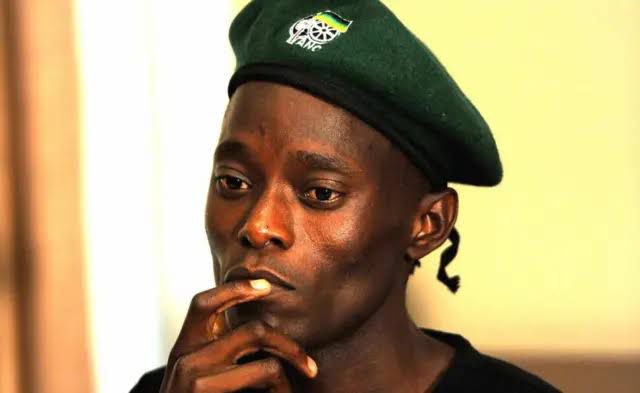Botswana joins list of African countries reviewing gay rights
By: Andrew Novak, George Mason University

Shutterstock
Botswana’s High Court is considering a challenge to the provisions of the penal code criminalising consensual same-sex relations in the country. It will hand down its judgment in June. The challenge raises similar legal issues as the one pending at the Kenya High Court, which is due for a decision in May.
Same sex relations are outlawed under Botswana’s penal code. These prohibitive sections were inherited from the colonial penal code of Bechuanaland, as Botswana was then known.
Section 164 prohibits “unnatural offences” defined as “carnal knowledge against the order of nature”. The section prohibits oral and anal sex for both homosexual and heterosexual couples. Those found to have broken this law face up to seven years in prison. Attempting to engage in unnatural offences is also illegal and offenders can spend up to five years in prison under Section 165.
Botswana’s laws are similar to India’s penal code, which was famously found unconstitutional by India’s Supreme Court in September 2018. The “unnatural offences” provision was included in India’s colonial penal code by Englishman Thomas Babington Macaulay and the Indian Law Commission in the 1830s.
Sections of India and Botswana’s laws were inspired by England’s King Henry VIII’s prohibition on oral and anal sex, also known as the Anti-Buggery Act of 1533.
Botswana’s anti-sodomy laws have been challenged before. In 2003, the Botswana Court of Appeal held that the penal code’s anti-sodomy provisions were constitutional. Botswana’s constitution dates back to its independence in 1960. It is therefore less modern than Kenya’s 2010 constitution. Under Kenya’s constitution, judges are empowered to look to international and foreign law to resolve domestic constitutional disputes.
The origins
More than 70 countries around the world still criminalise sexual activity between two men. About half of them are former British colonies. This is because Britain enforced Victorian sexual norms on its territories through penal code provisions that still exist in many places.
Since 1981 when the European Court of Human Rights struck down the UK’s anti-sodomy law, colonial penal codes have come under increasing scrutiny. Given their similarities, human rights activists have an opportunity to use international law and the laws of other jurisdictions as a tool to convince local courts that anti-sodomy laws are outdated.
India is the latest in a string of former British colonies that have removed their anti-gay laws. It follows countries as diverse as Cyprus, Fiji, Belize, Nepal, and Australia. A favourable decision in Botswana would reinforce this trend.
Many former British colonies in sub-Saharan Africa inherited penal codes like Botswana’s. In most former colonies, these include separate prohibitions on “carnal knowledge” (oral and anal sex) and on “gross indecency” (other sexual activities). Great Britain itself criminalised “gross indecency” – a euphemism for all forms of same-sex intimacy – in 1885. This was drafted into penal codes in Canada, South Pacific colonies, Northern Nigeria, British East Africa, and Botswana.
The situation in Botswana is most comparable to the situation in Kenya where the high court is expected to rule on the country’s anti-gay law in May.
But in Kenya, the penal code prohibition on “gross indecency” only applies to sex between two men. This used to be the case in Botswana until 1998 when the country’s legislature expanded the provisions to apply to women as well.
Kenya has also ratified international human rights treaties that prohibit anti-sodomy laws. By contrast, Botswana’s constitution is the oldest surviving constitution on the African continent. Its constitution does not require judges to look to treaties or other sources of international law to aid in their decision making process and international law is not binding on their courts.
Impact
The LGBT community is a target for physical violence, hate crimes, police harassment and surveillance.
The prohibition of same sex relations also contributes to increased HIV infection rates as fear of mistreatment discourages gays and lesbians from getting tested and accessing health care.
The rates of suicide and substance abuse are also higher within the LGBT community with one survey showing that LGBT people in Botswana have suicidal thoughts and use drugs more frequently than heterosexuals.
However, LGBT people have experienced legal progress in recent years. Three years ago, the Court of Appeal ruled that the government’s failure to officially recognise LeGaBiBo (Lesbians and Gays of Botswana) was unconstitutional.
And in 2017, a transgender rights activist won an important ruling at the High Court to legally change her gender on government documents.
These cases are important data points because they suggest that attitudes of judges may have evolved since the 2003 upholding of Botswana’s anti-sodomy laws.
But there are a few signs that things are possibly changing. Last January, President Mokgweetsi Masisi made an unprecedented statement of public support for LGBT rights in Botswana.
In 2016, Mmegi, one of Botswana’s main daily newspapers, reported that 43% of Batswana are not opposed to having homosexual neighbours, making it among the more tolerant countries in Africa.
But as is the case elsewhere in the world, acceptance of homosexuality varies by age and education level. Younger and more educated Batswana are more accepting of same sex relations.![]()
Andrew Novak, Term Assistant Professor, Department of Criminology Law and Society, George Mason University
This article is republished from The Conversation under a Creative Commons license. Read the original article.
Written by: Natasha
Similar posts
MORE ARTICLES

ANC Youth League demands justice for Sindiso Magaqa beyond hitman’s conviction

Liverpool FC vows to pay out Diogo Jota’s R350 million contract to his widow

The World Show with Nicky B broadcasts live from France

Sindiso Magaqa assassin handed an 85-year sentence

Skhumba, Kgomotso and Glen weigh in on reincarnation
QUICK LINKS
UpComing Shows

The Best T in the City
With T Bose
He has held it down in the world of mid-morning radio with the best music, riveting topics, brilliant mixes and interesting guests. Every weekday, The Best T proves why he is the BEST by connecting to you like only your bro or favourite uncle could. He lets his listeners dictate the songs they want to hear in the ever-popular Top 10 at 10, and his Three Teaspoons never run out. Catch The Best T in the City Mondays to Fridays from 09h00 to 12h00.
close
Feel Good
With Andy Maqondwana
Feel good about feeling good! That's exactly what The Feel-Good show is about. An escape from the negativity that surrounds us, indulging you in good feels. Pass it on to one and all. Spread the good feeling around Gauteng with Andy Maqondwana.
close
Kaya Biz
With Gugulethu Mfuphi
The world of business is simplified for you by Kaya Biz with Gugulethu Mfuphi. This fast-paced award-winning business show talks to the corporate giants as well as up and coming entrepreneurs about their wins and challenges. Gugulethu invites guests to offer their analyses of markets and economies, and also delves into issues of personal financial wellness. Kaya Biz airs Mondays to Thursdays 18h00 to 19h00.
close
Point of View
With Phemelo Motene
Point of View with Phemelo Motene delves into the day’s current affairs, touches on real issues that affect people’s daily lives and shares expert advice on questions posed by the audience. Mondays to Thursdays 20:00 to 22:00.
closeConnect with Kaya 959
DownLoad Our Mobile App
© 2025 Kaya 959 | On The Street On The Air











